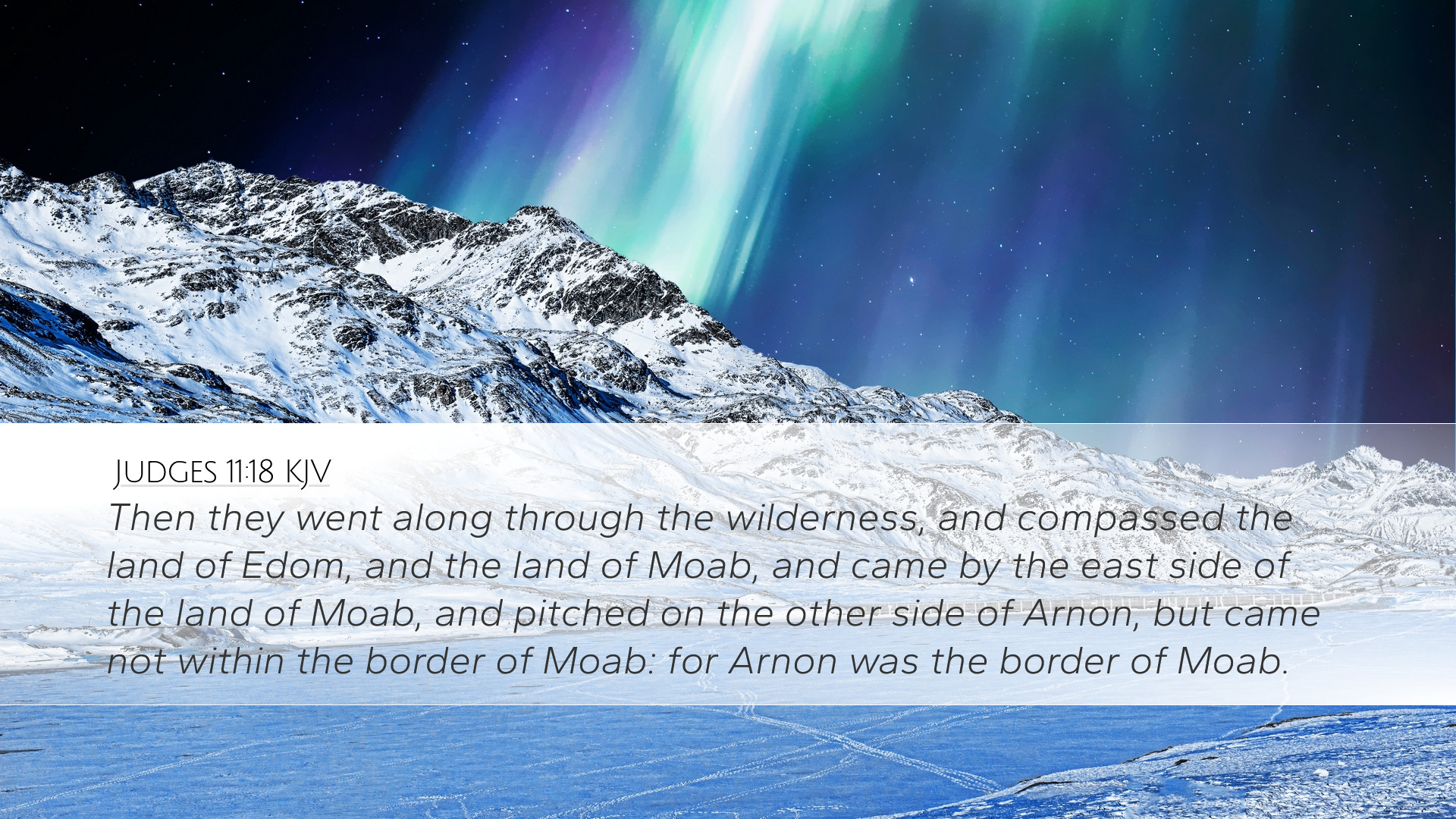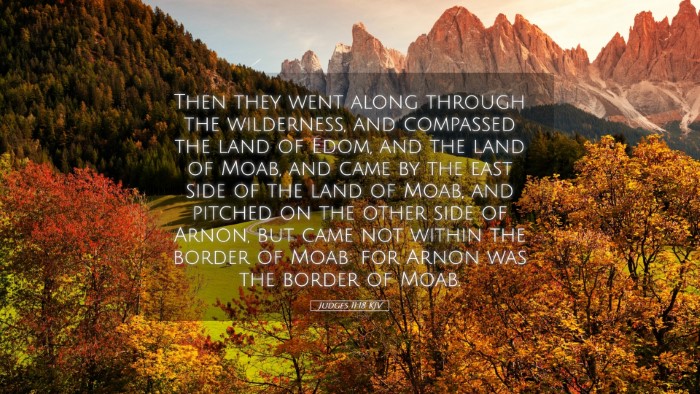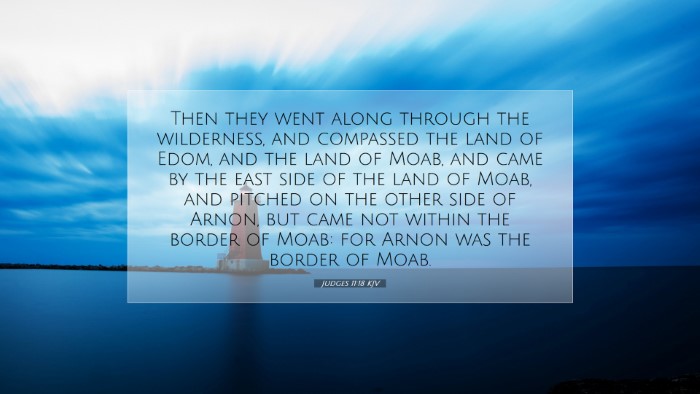Commentary on Judges 11:18
The verse in question, Judges 11:18, forms a critical part of the narrative surrounding Jephthah’s military leadership and Israel's plight during a significant period in their history. This analysis draws on insights from public domain commentaries, including those by Matthew Henry, Albert Barnes, and Adam Clarke, to dig deeper into the theological and historical implications of this passage.
Context of Judges 11
The Book of Judges details a tumultuous period in Israel's history when the people often turned away from God, leading to cycles of oppression and deliverance. In Judges 11, we meet Jephthah, a judge chosen by God to deliver Israel from the Ammonites. His leadership is characterized by both valor and a tragic vow that ultimately leads to personal grief.
Verse Analysis
Judges 11:18 states:
“Then they went through the wilderness, and compassed the land of Edom and the land of Moab, and came by the east side of the land of Moab, and pitched on the other side of Arnon; but came not within the border of Moab: for Arnon was the border of Moab.”
Historical and Geographical Considerations
Albert Barnes emphasizes the geographical significance of the mention of Edom and Moab. The land of Moab, situated to the east of the Jordan River, held particular importance for Israel's travels as they sought refuge from the oppressive Ammonites. The borders of Edom and Moab denote not only territorial distinctions but also reflect Israel's journey through the wilderness, a time of trial and preparation.
The Significance of the Journey
Matthew Henry notes that the journey undertaken by the Israelites represents not just a physical movement but also a spiritual pilgrimage. By traversing these lands, Israel was engaging with their historical enemies and reinforcing their dependence on God. It served as a reminder of past oppressions and God's faithfulness in leading them through trials.
Moab and Its Borders
This verse highlights the borders of Moab, established by Israel’s journey. Adam Clarke comments that the Arnon River, mentioned here as the border, was significant not only geographically but symbolically. It represented a boundary that Israel had to cross in pursuit of their deliverance—a metaphor for the spiritual boundaries believers often confront in their faith journeys. Understanding this river's boundary helps clarify the gravity of the situation as Israel prepared for battle.
Theological Implications
The actions and decisions in this journey compel deeper theological reflections about God’s guidance and the importance of obedience in the face of adversity. Jephthah's caravan was not merely a logistical maneuver but also a testament to divine providence.
- Obedience and Leadership: The obedience of Jephthah in following God's instructions showcases the qualities necessary in effective leadership. Matthew Henry parallels this to how modern leaders must remain steadfast in their convictions and guidance from Scripture.
- Faithfulness in Trials: The journey through hostile lands symbolizes the Christian life’s struggle against sin and the world. Albert Barnes encourages believers to view their challenges as preparatory paths leading them closer to God's promises.
Cultural Relevance
Culturally, the crossing and mapping of territories represent deeper societal dynamics. Adam Clarke points out the adversarial relationships between Israel and its neighbors during this time. The reluctance to invade Moab despite their proximity signifies respect for territorial rights, a principle that holds relevance in contemporary discussions on territorial integrity and moral leadership.
Conclusion
Judges 11:18 serves as more than just a historical account; it is a multifaceted passage that reveals the complexities of Israel's journey under Jephthah's leadership. Through insights gathered from esteemed biblical scholars, this verse encapsulates themes of obedience, faith, cultural boundaries, and spiritual growth. As pastors, students, and theologians reflect on this text, it invites them to consider the broader implications of God's faithfulness amidst the wilderness of life.


